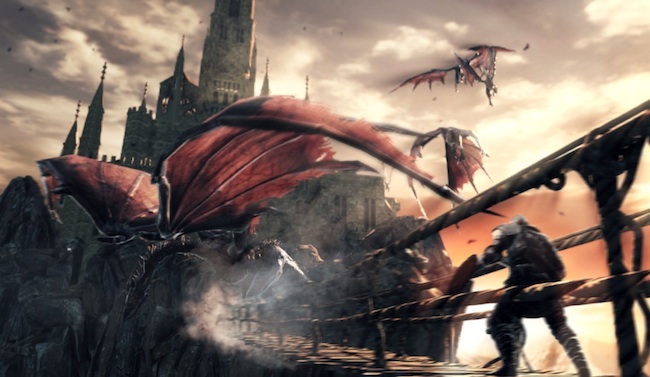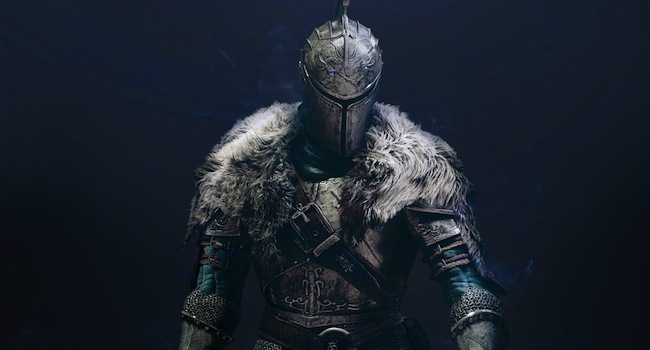South Africa’s retail forex industry is entering a decisive phase as regulation tightens and consolidation accelerates. What does it mean for brokers and traders?
‘Dark Souls II’ preview: the good, the bad, the worrying


When you boot up Dark Souls I and choose to load a game, a counter appears that accurately represents how many hours you’ve sunk into the campaign. Last I checked, mine read “124 hours.”
Ordinarily I finish a game once and toss it away. But nothing about Dark Souls is ordinary. The longer you play, eyes and ears tuned to its details, the more it takes hold. Much like your favourite book or film, Dark Souls is an ever-reliable companion. It’s not simply a disc. It’s a way of life.
I greeted the news of a sequel with both excitement and scepticism. How do you create a follow-up to the best game ever made? Yes, the best ever — take it from me, the game is peerless. It may not have pretty cinematics and a bloated story, but then it’s not masquerading as cinema. It’s all game, all of the time. Put it this way: when news emerged Dark Souls II was in development, I decided it better be good.
It’s common knowledge now that Souls creator Hidetaka Miyazaki is taking a break from the series and is overseeing Dark Souls II in a “supervisory” role. By that we assume he’s enjoying the fruits of his labour on a tropical island somewhere. In his place we have co-directors Yui Tanimura and Tomohiro Shibuya, and they recently unveiled twelve minutes of Dark Souls II in action.
The verdict? I’m happy to report that it looks a lot like Dark Souls I.
In fact, I’m surprised so little has changed. I always wrongly assumed we’d next visit the series on the Playstation 4, but no, Dark Souls II is being readied for the Xbox 360 and Playstation 3. And, for the first time, it’s set to appear concurrently on the PC. The visual improvements are subtle, but they’re there. Elsewhere, the bonfires reappear, the HUD looks virtually the same and gameplay cues — like the lock-on icon — are unchanged.
The Bad
Still, a Souls game is defined by the way it plays more than the way it looks. And as heirs apparent to Miyazaki’s legacy, my real fear is that co-directors Tanimura and Shibuya will fail to understand what makes the series so special.
My sentiments are mirrored by Jared Newman who, in a Time article, quotes Tanimura displaying a very narrow-minded view of what makes Dark Souls tick. “One of the underlying concepts for the combat system in Dark Souls,” says the developer, “is the simple controls and sort of the trial and error and strategic gameplay behind it.” This might be a simple error in translation (for Tanimura speaks through a translator), but “trial and error” is the very antithesis of the spirit of the series. We all know the original game is intended to be difficult. But if you’re repeatedly dying, it’s through fault of your own. Dying simply for the sake of punishment is never the aim.
Then again, this might simply be a case of the Japanese being poorly explained in English. Still, Newman goes on to quote a friend who excellently captures the possessiveness of every diehard Dark Souls fan. “I’m very particular about my [Dark Souls].” And it’s true. We all take on the game as our own.
I also worry Tanimura and Shibuya will try too hard to make Dark Souls II “open world.” GameSpot runs a preview that mentions “more choice”, but I’d hate to play a game that masquerades as Skyrim. Let’s be honest: too much freedom is a real pain, and the original game never ran afoul of this syndrome. Instead, it let you go where you pleased, but still ensured you were tethered to a world bound by inherent restrictions. (After all, your equipment often determined where you could and couldn’t roam.)
A more widespread concern is that Dark Souls II will be too compliant. You see, Souls fans are like members of private gentlemen’s clubs — they like mystery and exclusivity and woe betide anyone that tries to draw the veil. Personally however, I don’t mind the idea that Tanimura and his team are going to explain the sequel to newcomers. Dark Souls I was intentionally vague, but it also meant you were forced to scour the internet to work out what to do. I know one player, for instance, who went the entire Dark Souls campaign never knowing you could upgrade your Estus flask. Entering Dark Souls II and being briefly ushered under its wing is no bad thing.
The good
Cult games are notoriously difficult to improve upon because even their imperfections start to become likeable. Spend enough time with Dark Souls I and you’ll forgive it for its terrible menus and crushing difficulty. In light of this, Tanimura has the unenviable task of spearheading change in the sequel, but the changes he’s affecting seem to be subtle and welcome. He explains that combat hasn’t been tampered with, but that motion capture technology lends fights a greater sense of realism. The menus will be easier to navigate and, unlike Dark Souls I, you’ll have access to a teleport from the very beginning. Rather than overhauling the game design, Dark Souls II will offer a smoother experience that eliminates tedious busywork and streamlines the core experience. The Dark Souls fanatic inside me is whispering, “but I like all the tedious busywork”. But if tweaks to the formula are to be made, these are the right areas to address. Furthermore, I’m heartened to hear that Tanimura and co. are working hard to ensure the Dark Souls series finally makes a proper foray onto the PC.
As for the story, Tanimura stresses that a similar, opaque approach to storytelling will form the backbone of Dark Souls II, and that it’ll be a tale you need to “imagine for yourself.” The Lordan of old has been replaced by a new locale replete with “dragons” and other demons, and some of the enemies featured in the gameplay demo look utterly amazing. Where exactly the story takes place is not important — what matters is that it feels appropriately steeped in lore.

In the end, my gut reaction to Dark Souls II is a positive one. Tanimura and Shibuya are honouring Miyazaki by making a game that, broadly speaking, is more or less the same. They’ve “listened to fans” and this is exactly what fans want. Hell, I’d play the game again even if all that changed was the cover. Many sequels are criticised for being derivative, but Dark Souls II would be a lesser game were it to deviate from the formula.
Ultimately, how do you improve the best game of all time? You offer more of the same.
Images via Edge-online.com

